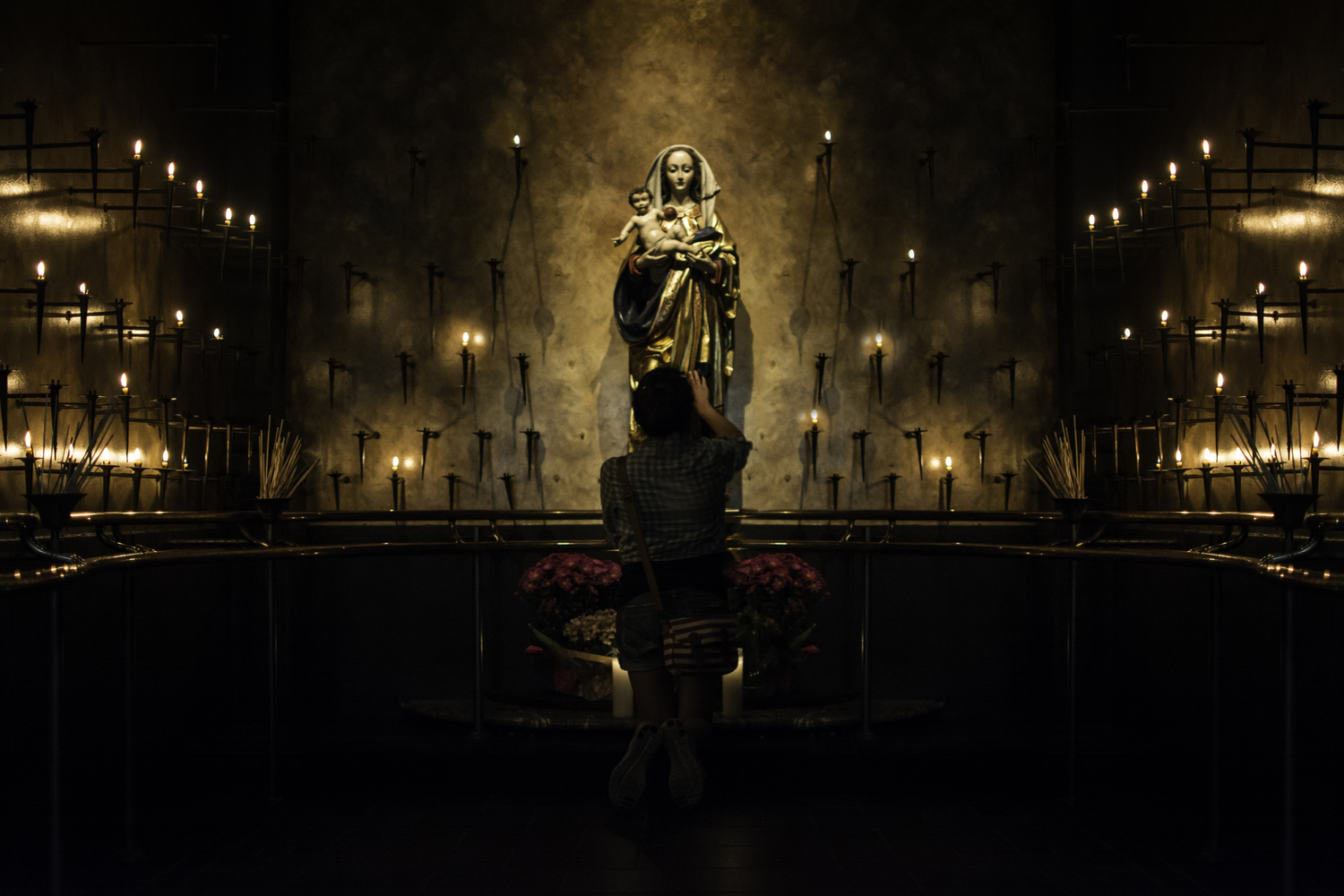My oldest son, Simon, turned six earlier this month. I remember the afternoon we were getting ready to take him home from the hospital. I stood there holding him, absolutely terrified that the nurses would actually let us leave the hospital with this baby. My wife and I had no idea what we were doing. Simon was so helpless, so vulnerable, so dependent on us for everything, and they trusted us to take care of him!?
Christmas was especially meaningful for me that year. The God who made space and time became as helpless as my baby son. He had to learn to walk and talk and feed himself. He got hungry and tired. God became that vulnerable.
In the Garden of Eden, right after they sinned, Adam and Eve saw that they were naked and then made clothes for themselves. They looked at each other’s vulnerable bodies and realized that the other person could be used, and as they thought this they realized that the other person could use them. So they protected their vulnerability.
Our God so humiliated himself that he allowed himself to be beaten, flogged, stripped naked and hung on a cross. All of the crucifixes we have depict Jesus in a nice loincloth, but that is for our own sense of modesty. The God who made the entire universe died with a vulnerable, naked body.
And this prompts the question, why would God do that? Why did God take on our humanity and die for us? The Catechism says, “The Word became flesh for us in order to save us by reconciling us with God” (Catechism 457). Jesus entered into our suffering, sin, and death – and defeated them. He undid all the effects of Adam’s sin. But that’s not the only reason that God became man.
God doesn’t intend to just simply restore us back to the Garden of Eden. He intends to give us far more. “For the Son of God became man so that we might become God” (Catechism 460). God’s original plan was to make us like himself. God made us so that we may participate in his divine nature. Jesus wasn’t God’s “Plan B.” God becoming man wasn’t simply a response to Adam and Eve’s sin, he always planned on becoming one of us in order to make us like himself.
Jesus has two natures, his divine nature and his human nature. God partakes of human nature completely so that you and I might partake of the divine nature. This means that the cross, Jesus’ sacrifice, was a means to a greater end. God didn’t become man just to die for our sins. Rather, Jesus saves us from our sins, restores our relationship with God, so that he can make us like God.
In his letter to the Philippians, St. Paul recites a hymn that captures the humility of a God who would become one of us:
“Jesus, though he was in the form of God, did not regard equality with God something to be grasped. Rather, he emptied himself, taking the form of a slave, coming in human likeness; and found human in appearance, he humbled himself, becoming obedient to death, even death on a cross (Philippians 2:6-8).”
This is how good God is. This is how much God loves us. This is how desperately God wants to reconcile us back to himself. Why? So that we can share in his divine nature. So that he can transform us and make us like himself. Today at Mass, the Church gives us this beautiful Collect prayer:
O God, who wonderfully created the dignity of human nature
and still more wonderfully restored it,
grant, we pray,
that we may share in the divinity of Christ,
who humbled himself to share in our humanity.
Christmas, as Pope Francis said last week, means celebrating the “unprecedented things of God,” or rather, “the unprecedented God.” The pope continued, “Take some time, stand in front of the manger and be silent.” Take some time today to contemplate the mystery of our God who only desire is to make our mind like his mind and our heart like his heart, to make us like himself.

Paul Fahey is a husband, father, and a parish director of religious education. He can be found at his website, Rejoice and be Glad: Catholicism in the Pope Francis Generation.
